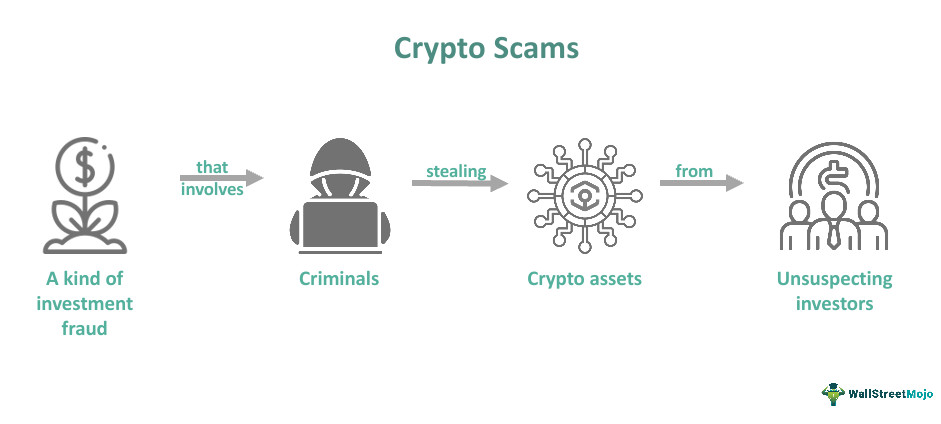The Global Syndicates Fueling Canada’s Battle Against Cryptocurrency and Pig Butchering Frauds


In Brief
The Canadian Anti-Fraud Centre and CIRO warn of a growing threat of sophisticated scams targeting Canadian investors, using social manipulation techniques to trick victims.
The Canadian Anti-Fraud Centre (CAFC) and the Canadian Investment Regulatory Organization (CIRO) have issued a warning about the growing threat of sophisticated scams aimed at Canadian investors as a proactive measure to protect its citizens. Extended online contact is a common component of these scams, which use social manipulation techniques to trick gullible victims into giving up their hard-earned money.

Photo: Crypto scam, CBC
The authorities in Canada have called attention to two especially harmful categories of fraud: cryptocurrency investment schemes and romance scams, which are also known as pig slaughtering scams. Both versions operate in a similar way, taking advantage of people’s emotions and trust while relying on the attraction of cryptocurrencies and their potential for large rewards.
Scams Using Cryptocurrency and Pig Butchering: Unrealistic Riches Promises
Scams involving cryptocurrency investments have spread around the world, taking advantage of people’s enthusiasm for digital assets and the possibility of being financially independent. These frauds frequently present themselves as respectable investment options while offering astronomical returns on crypto investments.
After being tempted, victims are persuaded to transfer money or cryptocurrency into the trading accounts of the con artists. Small withdrawals could be permitted at first to create a false impression of legality, but in the end, the victims’ ability to access their invested cash is cut off, putting them in dire financial straits.

Photo: WallStreetMojo
Canadian officials have identified a number of warning signs linked to these scams, such as unwelcome messages from other people on dating apps or online platforms, references to easy money to be made in the cryptocurrency market, invitations to visit websites related to cryptocurrencies that offer guaranteed returns, and the provision of falsified financial records showing imaginary profits.
Although the phrase “pig butchering” may seem innocent, it conceals the subtle aspects of this particular swindle. These frauds, which are sometimes referred to as cryptocurrency romance scams, take advantage of people’s feelings and yearning for the company while tying in the promise of money.
Scammers usually use dating apps, social media, or even “wrong number” SMS messages to reach out to potential victims. They then use advanced social engineering techniques to establish a rapport with these victims. As the conversations go, they seem to be developing a romantic relationship, which builds trust and emotional commitment.
After the victim’s guard is down, the con artist presents the idea of investing in cryptocurrencies, frequently posing as a profitable trader or financial counselor. After that, victims are urged to send money to certain wallets or accounts or invest in the scammer’s fictitious trading platform under the pretense of taking part in profitable investment possibilities.
Photo: Crypto scam, CBC
Similar to other cryptocurrency frauds, the first phases can include permitting modest withdrawals in order to support the appearance of validity. But as soon as the victim transfers significant sums of money or cryptocurrency, the con artist suddenly cuts off communication, leaving the victim heartbroken both financially and emotionally.
The Development of International Cybercrime Syndicates
The presence of international criminal groups, especially those based in nations like Myanmar and Cambodia, exacerbates the threat presented by these frauds. These criminal organizations have a history of engaging in human trafficking, using victims as virtual slaves to carry out large-scale pig slaughtering schemes.
Authorities have discovered unsettling tales of victims who have lost enormous amounts of money—sometimes more than millions of dollars—to these highly skilled criminal businesses. These activities are cross-border in nature, which adds another level of complication and makes it difficult for law enforcement to find and capture the offenders.
The Canadian Reaction: Spreading Knowledge and Educating People
Taking proactive measures to prevent individuals from falling prey to these deceptive schemes, Canadian authorities have launched awareness programs in recognition of the serious threat these frauds pose.
Canadians have been advised by the CAFC and CIRO to proceed with utmost caution when interacting with those who talk about investing in or trading cryptocurrencies, especially if they do so online. Additionally, they have cautioned against making investments based only on the advice of someone you met online, stressing the value of speaking with licensed financial advisers.
Authorities have also urged the public to exercise caution when promised high, rapid, or low-risk returns are made because they are frequently signs of fraudulent schemes. It’s also highly advised to report suspected investment fraud to the relevant authorities, such as the CAFC, CIRO, and local law enforcement.
Worldwide Consequences of Crypto Hacks and the Need for Coordinated Action
The rise in cryptocurrency fraud is not limited to Canada; it is an international issue that has taken victims in many other countries. The strategies used by fraudsters are growing and changing along with the digital asset market, which emphasizes the necessity for coordinated international efforts and cooperation between regulatory agencies and governments.

Photo: Chainalysis
A dismal picture is painted by recent figures, which show that in 2023, investment fraud losses in Canada reached an astounding $309.4 million, the biggest amount of losses ever recorded to the CAFC in that year. A significant $172 million of that total came from frauds involving social media, highlighting the part that internet platforms play in helping to perpetrate these kinds of scams.
A number of high-profile events have occurred in the cryptocurrency space globally, which has increased worries about the sector’s susceptibility to bad actors. Hundreds of millions of dollars were lost as a consequence of the BlockTower Capital breach, the Pump.fun vulnerability, the Gnus.AI Discord hack, and the PlayDapp vulnerabilities combined.

Photo: Chainalysis
Creating a Course for the Future of Crypto Security
It is critical that all parties involved in the cryptocurrency ecosystem—developers, exchanges, regulators, investors, and others—work together to solve the urgent problem of cryptocurrency scams as the sector develops and grows.
Regulatory agencies are essential in creating a framework that protects consumer interests while promoting innovation. By imposing new reporting standards on crypto-asset service providers and strengthening sector monitoring, the Canadian government’s decision to implement the global Crypto-Asset Reporting Framework (CARF) by 2026 is a positive move.
Disclaimer
In line with the Trust Project guidelines, please note that the information provided on this page is not intended to be and should not be interpreted as legal, tax, investment, financial, or any other form of advice. It is important to only invest what you can afford to lose and to seek independent financial advice if you have any doubts. For further information, we suggest referring to the terms and conditions as well as the help and support pages provided by the issuer or advertiser. MetaversePost is committed to accurate, unbiased reporting, but market conditions are subject to change without notice.
About The Author
Victoria is a writer on a variety of technology topics including Web3.0, AI and cryptocurrencies. Her extensive experience allows her to write insightful articles for the wider audience.
More articles

Victoria is a writer on a variety of technology topics including Web3.0, AI and cryptocurrencies. Her extensive experience allows her to write insightful articles for the wider audience.


















































